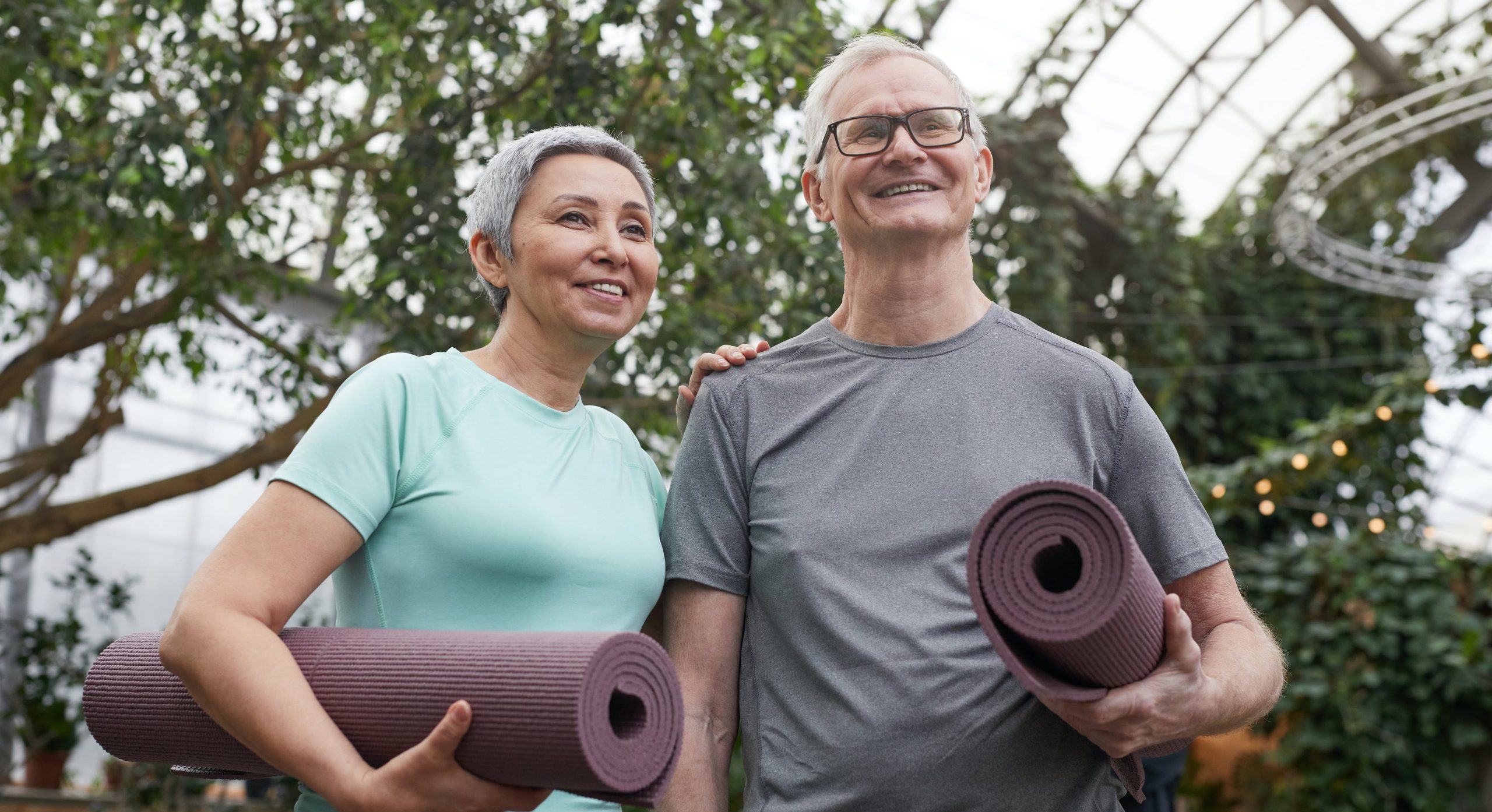Stress is your body’s reaction to feeling threatened or under pressure. It is meant to motivate you to meet the demands of everyday life.
Framed in this way, stress itself isn’t a bad thing – it’s supposed to help you conquer your problems, not cause them. Unfortunately, our bodies aren’t perfect at detecting pressure, so sometimes they overreact and produce too much adrenaline, the stress hormone that prepares us for fight or flight.
Too much stress can affect your mood and take a toll on your body, especially in later life. So it is important to manage. Keep reading to learn more.
Six tips for managing and reducing stress in later life
1) Trigger the relaxation response
The relaxation response is the final stage of the stress response. It calms you down and helps your mind and body recover. Best of all, you can trigger the relaxation response using breathing exercises.
Breathing exercises counter the stress-inducing effects of adrenaline. There are lots of different techniques to choose from, including alternate nostril breathing and diaphragmatic breathing. But if you want to start off small, we recommend counted breathing. It is a quick and easy way to focus attention away from whatever is causing you stress and elongate your exhales.
2) Start a journal
Journaling involves keeping a diary that explores your thoughts and feelings. It can be very therapeutic and, according to Scientists at the University of California, can help you regulate your emotions by reducing activity in the part of the brain responsible for emotional intensity.
Before you get started, think carefully about what it is you wish to explore. If you are unsure about what to write, do something simple like writing a list – you can jot down words describing how you feel or list things you are thankful for.
3) Get a good night’s sleep
Sleep is important for both your mental and physical health. If you don’t get enough sleep, it can increase your chances of feeling unwell and make it harder for you to deal with everyday problems.
If you think your sleep could do with improving, take a moment to reflect on your ‘sleep hygiene’. Good sleep hygiene means you have a comfortable bedroom and a daily routine that promotes consistent, uninterrupted sleep. Here are some of the most common changes older people can make:
- Cut down on caffeine
- Keep a consistent bedtime routine
- Avoid screens 30 minutes before bed
- Increase your exposure to daylight
- Invest in a comfortable bed and mattress
4) Exercise
Exercise is a great stress buster. Not only does it encourage the production of endorphins – the body’s happiness hormone – but it also reduces your chances of developing diabetes and cardiovascular disease.
As an older adult, you may find you can’t exercise as intensely as you once did. Fortunately, there are still exercises that you can do to get your heart pumping. The NHS recommends people over 65 do at least 150 minutes of moderate activity every week. Moderate activity is anything that makes you breathe harder and increases your heart rate.
If you are struggling for ideas, take a look online. There are lots of exercise classes for elderly people on websites like YouTube. Joe Wicks completed a whole series of workouts during the pandemic.
5) Challenge yourself
As we get older, it can be easy for us to slip into old habits and do the same thing day in, day out. This can take the spark out of life and make every day feel the same, increasing our chances of feeling low. Doing something new can have the opposite effect and make us feel more confident in our abilities.
Professor Cooper, an occupational health expert at the University of Lancaster, says: “By continuing to learn, you become more emotionally resilient as a person. It arms you with knowledge and makes you want to do things rather than be passive.”
There are lots of resources available for older people who wish to learn something new. An excellent example is the University of the Third Age, a UK-wide organisation of locally run interest groups.
6) Join a personal alarm service
After years of sharing your home with a family or spouse, living on your own can take a long time to get used to. So much so that sometimes elderly people experience a great deal of stress because of it.
If you think living on your own is causing you stress, maybe because you have a long-term health condition or worry about suffering a fall, a personal alarm could offer you the reassurance you need to feel more confident.
Personal alarms are discreet, wearable devices that allow the user to call for help at the touch of button. They are proven to help older people live more independently and cost from as little as £4.36 a week. You can learn more about our Care Hub package here.
